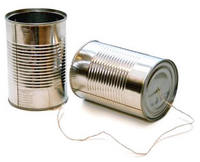Bill Davidow wrote for the Atlantic 10 April 2012, How Computers Are Creating a Second Economy Without Workers,
“Twenty years ago, if you went into an airportWell, except for that part about “a computer”. And the flight computers in the airplane. And the FAA computers. And….you would walk up to a counter and present paper tickets to a human being. That person would register you on a computer, notify the flight you’d arrived, and check your luggage in. All this was done by humans.”
This is also true:
“Today, you walk into an airport and look for a machine.While Bruce Sterling can (rightly, I think) say that’s not AI, nonetheless it all happens without much human intervention. And pixelated images of airplanes don’t start to indicate what’s going on in there.You put in a frequent-flier card or credit card, and it takes just three or four seconds to get back a boarding pass, receipt, and luggage tag. What interests me is what happens in those three or four seconds. The moment the card goes in, you are starting a huge conversation conducted entirely among machines. Once your name is recognized, computers are checking your flight status with the airlines, your past travel history, your name with the TSA (and possibly also with the National Security Agency). They are checking your seat choice, your frequent-flier status, and your access to lounges.”
The punchline:
“Here’s the challenge: In the past, every million-dollar increase in economic output generated on the order of ten jobs. In the future, in the productive Second Economy, it may generate only one or two.”That’s not new. I’m a farmer, and 90% of farm jobs in this country Continue reading





 Back in 1995, an organization calling itself
AMERICA’S CARRIERS TELECOMMUNICATION ASSOCIATION (“ACTA”),
Back in 1995, an organization calling itself
AMERICA’S CARRIERS TELECOMMUNICATION ASSOCIATION (“ACTA”),


